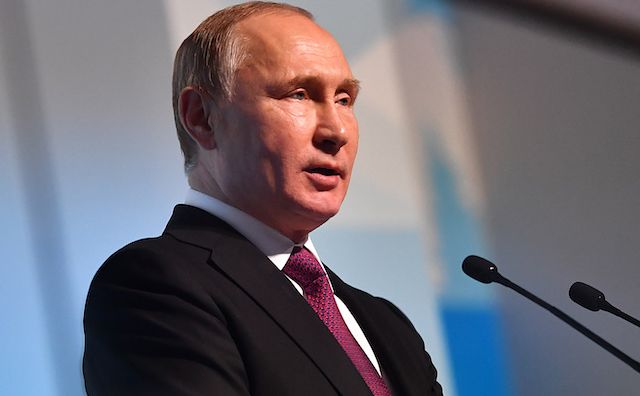Foreign meddling in elections: a form of ‘alternative truth’
The president of the U.S. will not be charged with cooperating with the meddling of Russia in the 2016 elections. An investigation has found no proof that any collusion occurred. The talk in Europe and the U.S. is intended to conceal the real problem of the ruling establishments: they have governed poorly and are losing popular support.

In a nutshell
- Russian propaganda and social media manipulation cannot corrupt a robust democracy
- The ascent of “populist” movements in the U.S. and Europe has been caused by lowered governing standards, not foreign meddling
- Political chaos is the price to be paid for making room for new political diagnoses, visions and solutions
The report from the investigation led by Special Counsel Robert S. Mueller was submitted to the United States Department of Justice. According to U.S. Attorney General William Barr, the special counsel found no evidence that President Donald Trump or any of his aides colluded with the Russian government’s interference in the 2016 presidential election. Nonetheless, the issue will continue to damage the functioning of the American political system.
Many still maintain that Russia successfully influenced the election process by spreading misinformation and propaganda. However, we believe that American democracy is robust and foreign interference cannot decisively change its workings.
Likewise, there is a professed concern in Europe that Russian propaganda aimed at European voters will add strength to a spectrum of so-called “radical” parties. Is there a reason to believe that the Kremlin will alter the electorate’s opinions? Could the Kremlin’s alleged strategy succeed in Europe?
Dwindling mainstream parties
Big powers do try to influence elections in other countries, but rarely are these efforts are rewarded with striking success. It is conceivable that these days, too, Russia is attempting to sow controversy and discord in the West with its cunning propaganda. But is that the real cause of the problems that we are witnessing?
What we see is that the influence of the traditional, mainstream political parties is dwindling in Europe. Given their sins, particularly the abandonment of principles to try to attract support from constituent groups, such a decline is logical and inevitable. The parties’ response to the loss of the electorate’s trust is not a return to principles (not to be confused with the narrow-minded principalist reflexes of the bureaucracies). And it is also not a revival of responsible, disciplined, statesmanship with vision. Instead, the current leaders have been trying their best to marginalize the emerging new political groups coming up with alternative diagnoses, visions and policies.
We may be witnessing the process of a creative destruction in the political arena.
Instead of being invited to participate in fact-based public debate, citizens are admonished not to criticize the established policies. Such criticism is loudly condemned as support for “populist” solutions. Furthermore, nearly all traditional parties have moved to the left and there is no longer a big difference between them, with the result that certain topics – especially those touching on the welfare state or related to hot-button issues such as immigration or state decentralization – are treated as taboos.
Any healthy democracy needs debate, a plurality of opinion, tolerance (not to be confused with acceptance of misbehavior, a lack of resolve or indifference), and respect of other opinions. Also, subsidiarity, decentralization and respect for regional differences are crucial.
One may understand, to a point, the reluctance to criticize the traditional – and once successful – political parties. However, there is no escaping the reality that these parties have failed to lead responsibly. They have left daunting unaddressed problems, such as excessive public debt, the underlying causes of criminality, immigration, end so on. Ignoring the failure only helps to maintain an illusion. We may be witnessing the process of a creative (one hopes) destruction in the political arena. Certainly, radicals breed trouble, but they appear to be a catalyst for change. Unfortunately, instability may prove necessary to make room for a new, more open and efficient, not necessarily radical, political leadership in many European countries.
Handy excuse
The election of Donald Trump as president came as a shock to the establishment of both political parties in the U.S. Rather than accepting the voters’ verdict, Russian influence was invoked as an excuse to resist change. The country’s political “elite” is clinging to the patronizing policy of strengthening the central power. President Ronald Reagan (1981-1989) once rightfully said: “Government’s first duty is to protect the people, not run their lives.”
In Europe, the situation is similar. Of course, we do not want the Kremlin to influence the European elections, and watching it closely is necessary. However, such purported meddling may also become a handy excuse for the European People’s Party and the Social Democrats if their disappointed electorate abandons them.
Crying wolf – or Russian bear, in this instance – is a dangerous habit. It detracts leaders from real challenges and facilitates delusions. Today’s catchphrase for this old practice is “alternative truth.”
